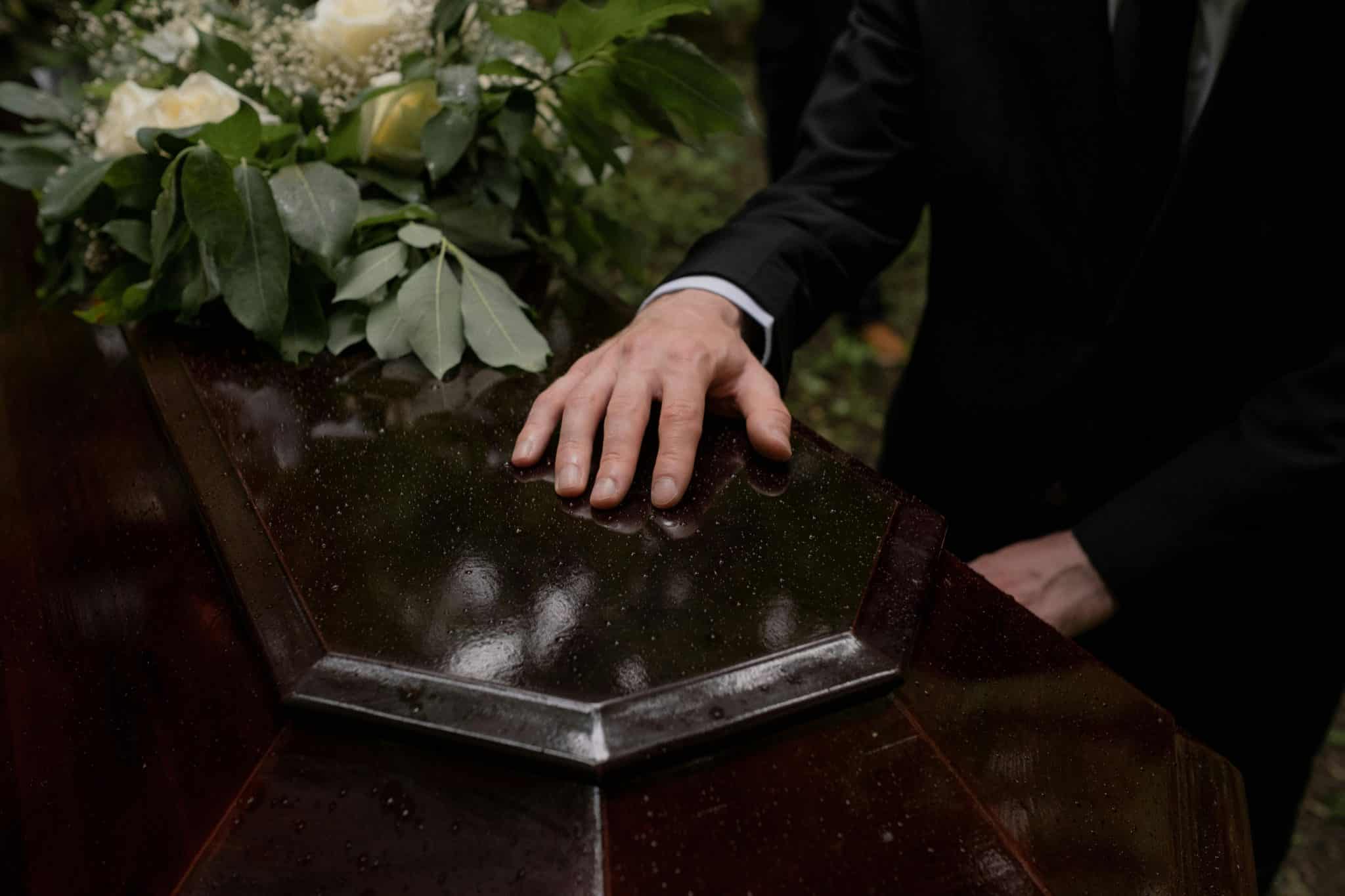“For God and country”: Chaplains carry on tradition of service and faith
by Rachel Phua // November 6, 2018, 12:42 pm
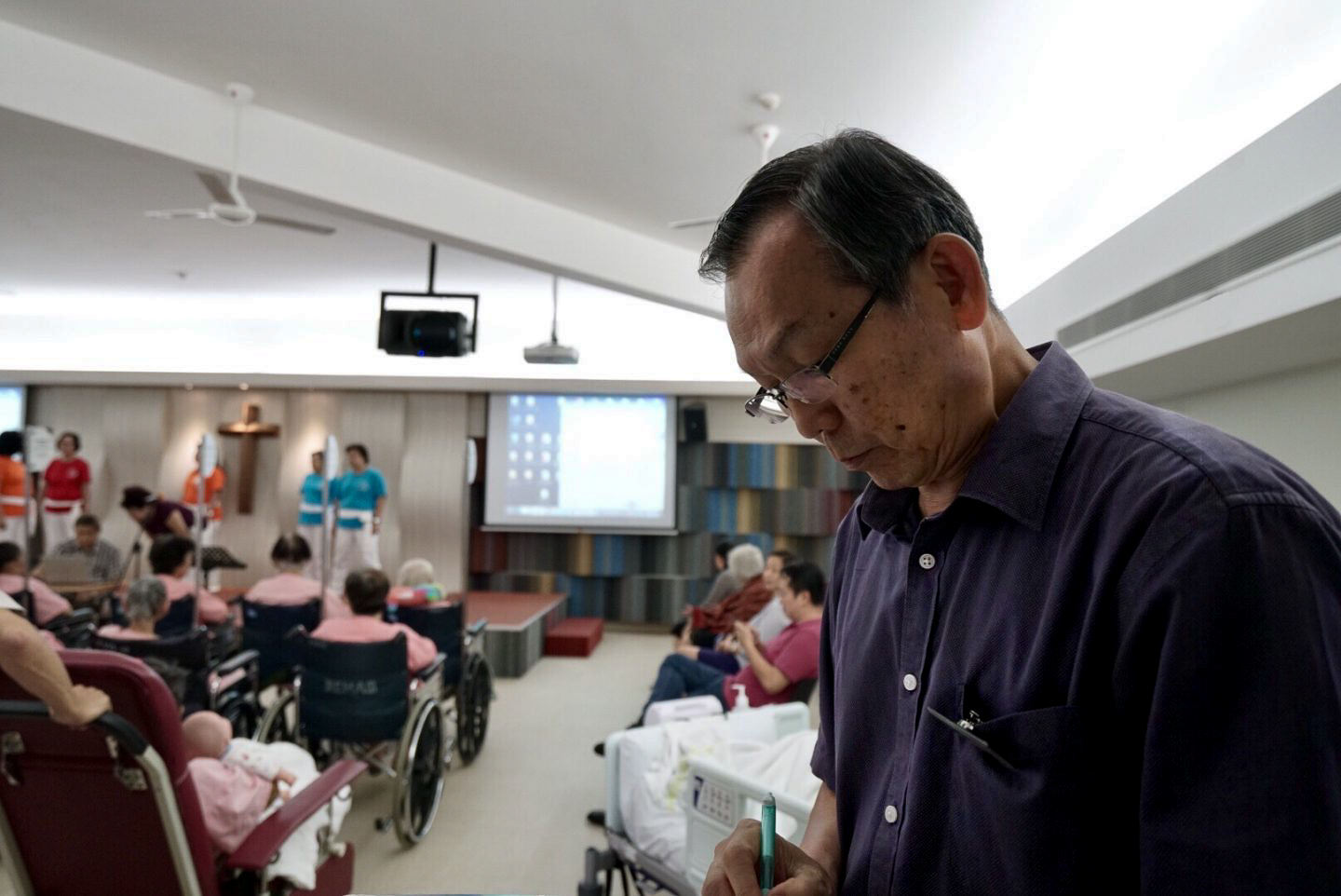
Richard Woo is one of the five chaplains at St Luke's Hospital, taking care of the patients' emotional and spiritual needs. All photos by Rachel Phua.
On February 3, 1943, in the midst of World War 2, a US army ship transporting 902 men was hit by a German torpedo.
The initial hit killed and wounded scores of men and, as the ship started sinking, four army chaplains – a Methodist, a Jewish Rabbi, a Dutch Reformed minister and a Roman Catholic priest – helped calm the remaining men while handing out life jackets.
When there were no more life jackets left, the four gave up their own. Reports have it that, as the ship sank, the chaplains stood on the deck, arms linked, singing hymns and offering prayers.
As the ship sank, the chaplains stood on the deck, arms linked, singing hymns and offering prayers.
That day, February 3, is now commemorated as Four Chaplains Day in the US, to remember the four men who gave up their lives for God and country.
Those four chaplains represent a role little known in Singapore society.
Chaplains are pillars of faith in places where people might not be able to attend a traditional church service – traditionally in hospitals, prisons, educational institutions and even in the midst of war.
Here in Singapore, chaplains number a rare few who quietly carry out a vital pastoral role to strengthen the spirit and faith of those within their charge – including those staring death in the face.
Three chaplains
It is 1pm on a Monday in early October. The ground floor of Orchard Central shopping mall is bustling with tourists evading the blazing sun.
But head 10 floors up and it is a completely different world.
Fifteen executives are huddled together in a small, dimly-lit auditorium. They bow their heads as a man with salt-and-pepper hair, eyes closed, prays in hushed tones.
David Chan is the chaplain of Far East Organisation (FEO), a role he took up in 2012 at the invitation of his Bible study partner and the company’s chief executive, Philip Ng. At the same time, Chan received a vision from God that he “needed to do something” in FEO.
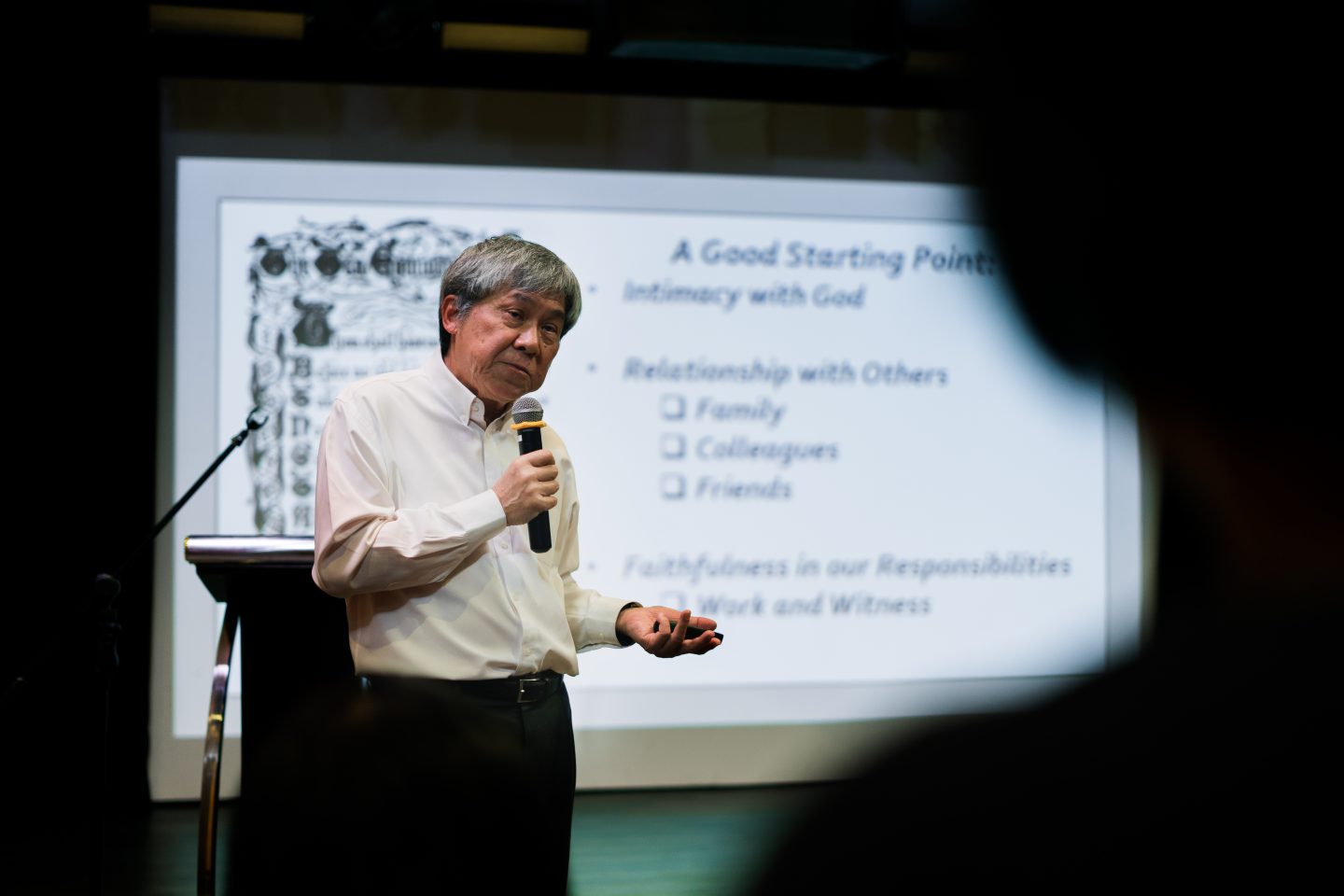
Chan has been property developer Far East Organisation’s chaplain since 2013. He oversaw the company’s move to declare itself a “Christian enterprise”.
Chan, a graduate of the Biblical Graduate School of Theology, spends most of his three-day work week meeting colleagues over Bible study, in an Alpha course, at the company’s monthly chapel service, or on a one-to-one coffee chat.
Other times, he is in his office at Riverside Point writing devotionals for the company’s in-house magazine, Landmark.
Chan, 69, says being a ubiquitous figure in the company is essential to his job.
“When the Gospel enters, it’s a tremendous hope for the prisoners, because they know their past can be wiped clean.”
“People find it very useful to talk to someone who knows the personalities that are involved. I can show them what it’s like in the other party’s shoes,” Chan says of the counselling sessions. “This lets me suggest ways, for example, of how subordinates can talk to their superiors and vice versa .”
Like Chan, Pastor Tan Boon Teck is chaplain to a distinct group of people – in his case, prison inmates.
Pastor Tan is one of seven volunteer chaplains with Prison Fellowship Singapore. He runs a two-hour Sunday afternoon chapel service for inmates who are less than four months away from their release.
The 63-year-old says the incarcerated tend to be more receptive of the Gospel. Being fenced in forces them to confront their wrongdoings. On the outside, anyone – whether they have broken the law, or not – can pretend that they are good people, he says.
“When the Gospel enters, it’s a tremendous hope for them, because they know their past can be wiped clean,” says Pastor Tan, who is the former senior pastor of Emmanuel Evangelical Free Church. He is a graduate of Trinity Theological College.
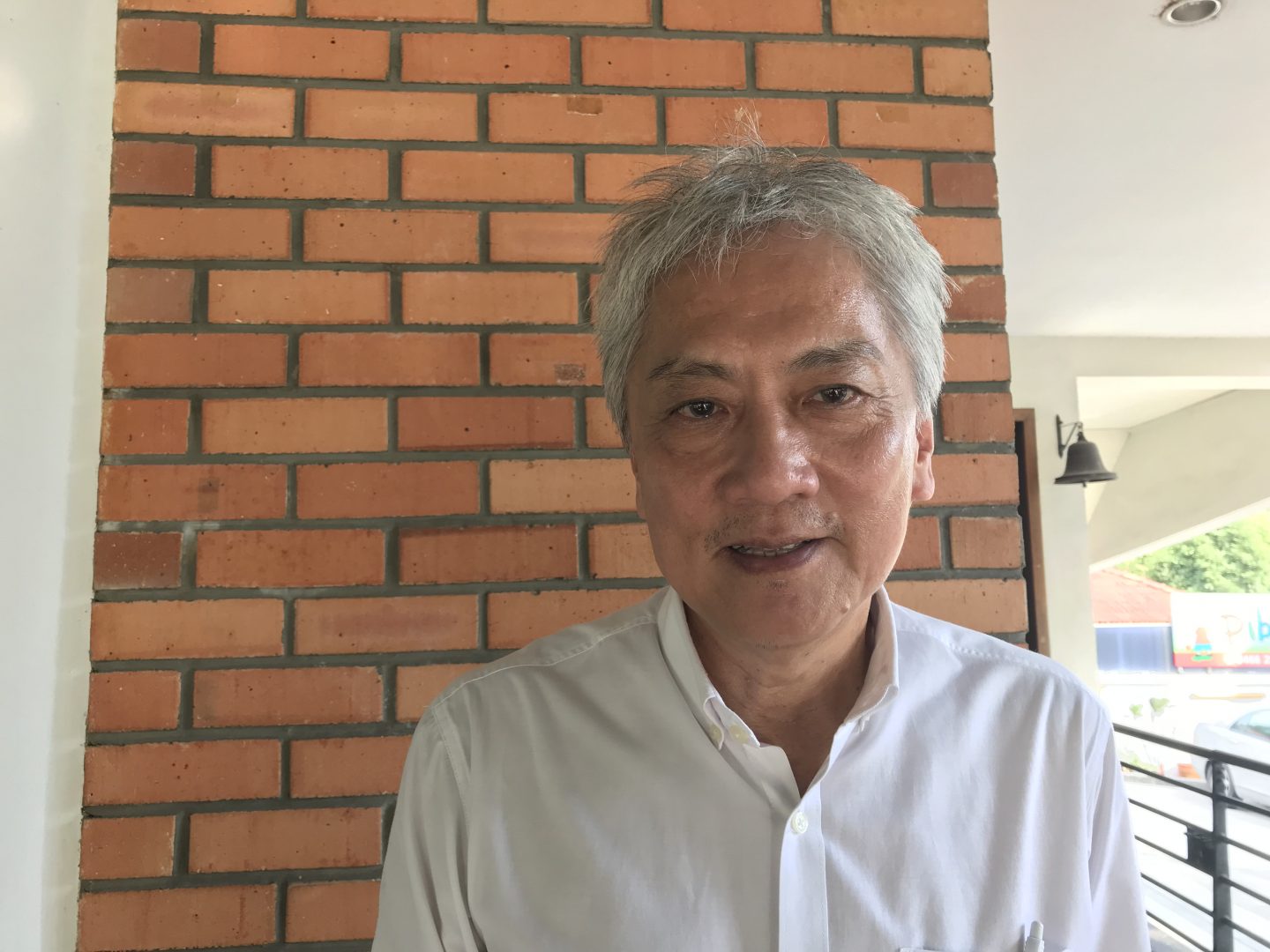
Pastor Tan Boon Teck is one of seven chaplains at Prison Fellowship Singapore. Besides running Sunday chapel services for pre-release inmates, he also ministers to prisoners on death row.
The Good News gives the inmates a new sense of purpose, he adds.
“Their whole concept of freedom is warped. For them, freedom is being able to do whatever you want,” he explains. “But the Bible is different: It tells you to do what you know is right, not to do what you know is not right (Romans 6:22, 1 Peter 2:16).”
And because there is nothing to distract them in prison – no worries about money, or what to do with their time – these inmates end up having a profound understanding of Scripture that many regular believers do not have, observes Pastor Tan, who has been serving with PFS since 2001.
But serving time does not change a man overnight.
Pastor Tan meets inmates who continue to hold grudges. He tries to pull them away from their bitterness and rage. Otherwise, they will leave prison a more angry person than before, and end up in a vicious cycle of imprisonment.
He tells them to spend time to “know the God who loves you, who may change you, who wants to bless you”, so that their term behind bars becomes a blessing.
Often, testimonies come in the form of restored family relationships, Pastor Tan says. Though it may be a long time before they re-earn the trust of their kin, making the effort to sober up eventually often gains them the respect of their children, siblings and spouse.
“God will heal the relationship,” he adds.
Over at one of Singapore’s first community hospitals, St Luke’s Hospital, Richard Woo has spent most of his 13 years there healing the sick – spiritually.
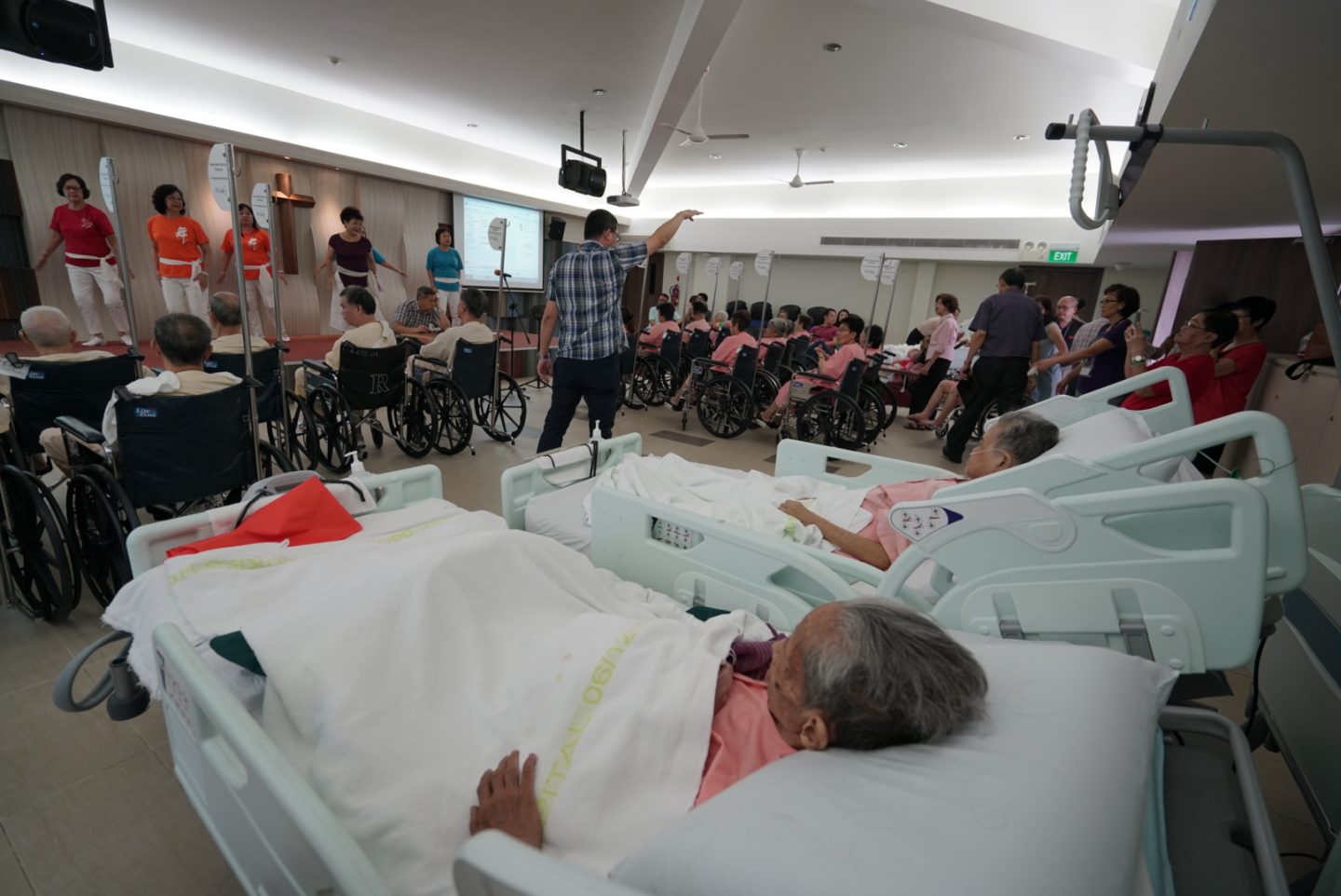
The community hospital holds a weekly dialect chapel service on Fridays, and one in English on Wednesdays.
“The greatest gift you can give is a listening ear. Maybe for every half an hour, you just talk for five to 10 minutes and let them share with you their story,” says Woo, who also studied at TTC. In the process, he tries to help the downtrodden look at the bright side and recover their self-worth.
“The greatest gift you can give to a patient is a listening ear.”
He recalls a patient in his early 50s who had early onset of Parkinson’s disease. The sullen man rarely left his hospital bed, and kept listening to recordings of chants. He was perpetually glum, unable to come to terms with his diagnosis, though his wife and daughter were often by his side.
Woo tried to talk him out of his depression, pointing out that his wife came every day to visit, do craft activities or eat with him. His daughter popped by frequently as well. Despite his condition, this man’s family showered him with love.
The patient’s mood has improved dramatically, Woo says. He is chatty and willing to ask the chaplain for help.
“It’s critical to turn your mindset around. If you keep entertaining bad thoughts, one day you’ll be in that state permanently,” Woo says.
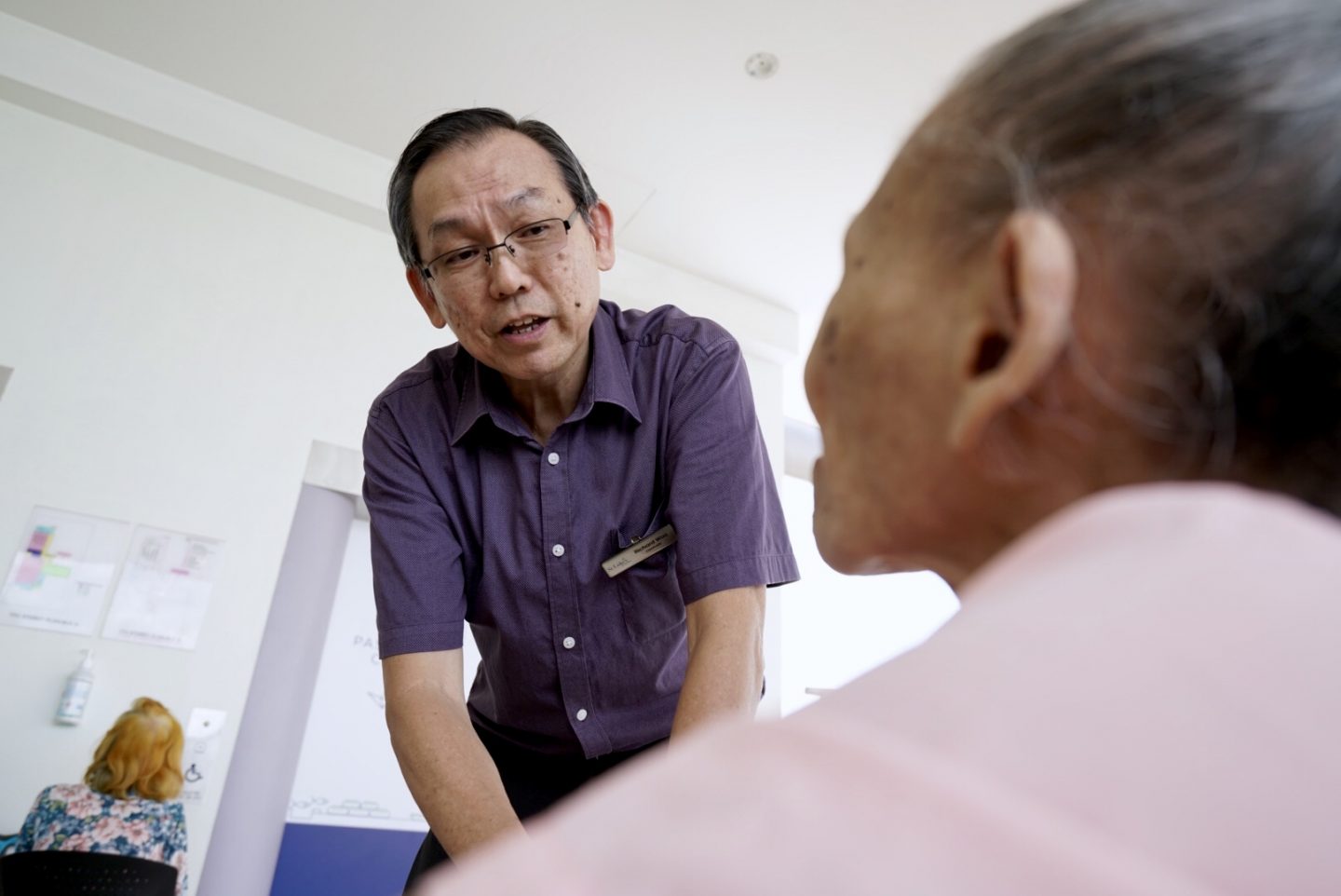
Woo has been a chaplain at St Luke’s Hospital for the past 13 years. Previously, he was a chaplain at St Andrew’s Community Hospital.
Woo, 60, makes his rounds in the wards at least every other day, greeting and interacting with all patients, regardless of their religion. He prays – with the patient’s permission – that God will heal them and they will find rest during their stay.
God in the workplace
Three years into his job, in 2015, Chan ended up being an advisor to Far East Organisation’s human resource department when it came to working out a revised set of values when the firm announced it was a “Christian enterprise”.
For instance, the issue of grace can be tough to translate in the corporate world, he says.
“Christian values run contrary to a lot of the business practices – you can’t take shortcuts, you can’t silence your conscience.”
“It’s quite easy to give grace to your top performer. So even if he or she keeps coming late for work, for example, you would let him or her off the hook. But would you extend the same grace to somebody whose performance is lacklustre?”
As Christians, we should if there is a “redemptive element” to it, says Chan – that “when you do so, the person catches a sense of what you are doing and responds positively”.
“When we talk about Christian values, it runs contrary to a lot of the business practices, because it means you can’t take shortcuts, you can’t silence your conscience, you need to be more than fair in your relationship and look after the other party.”
FEO’s declaration led to another interesting project for Chan. He was one of the main personnel in charge of helping the organisation remove the altars and shrines on all its premises since the beginning of 2016.
It was something that required sensitivity.
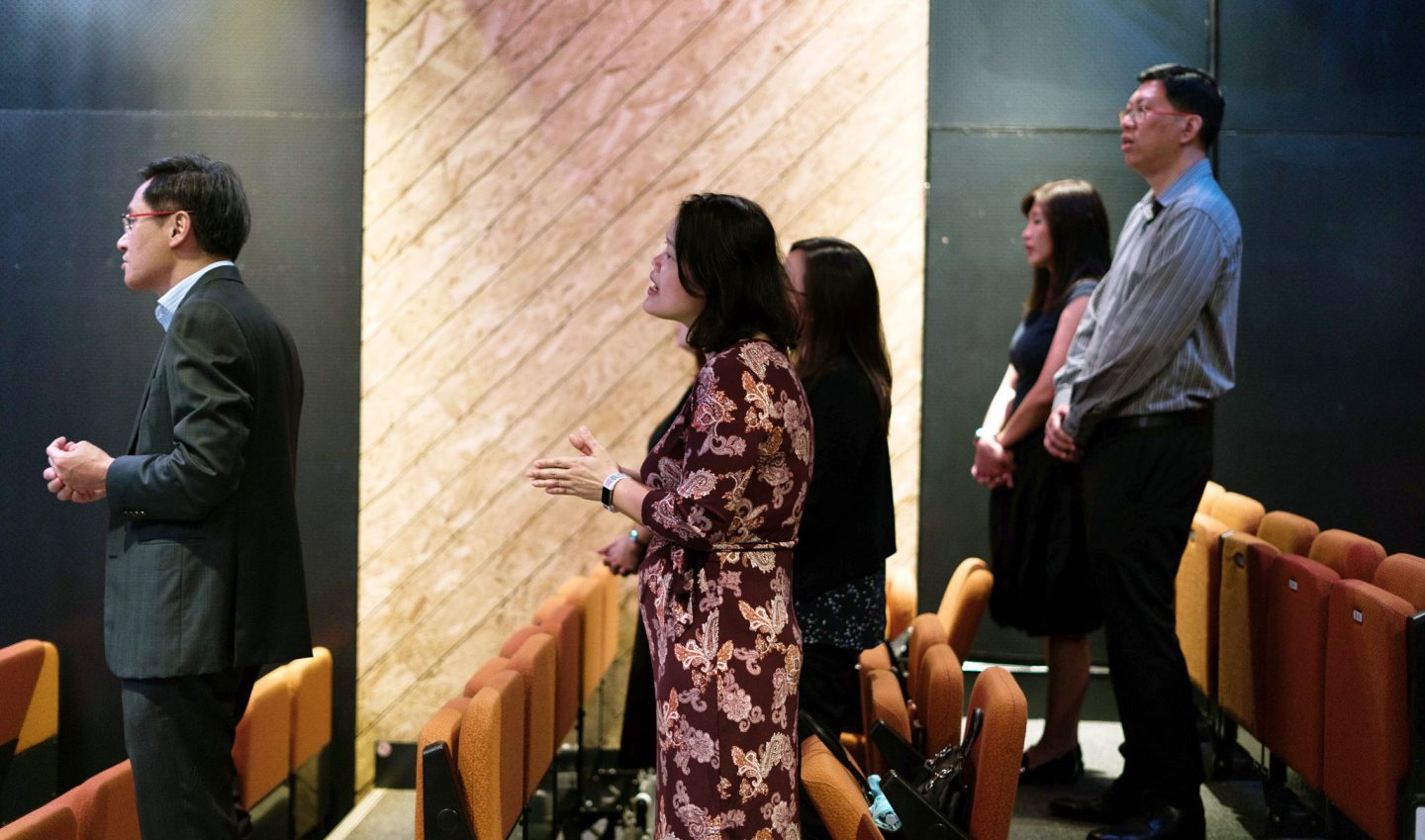
Since January 2017, Chan has been running a monthly chapel service for Far East Organisation.
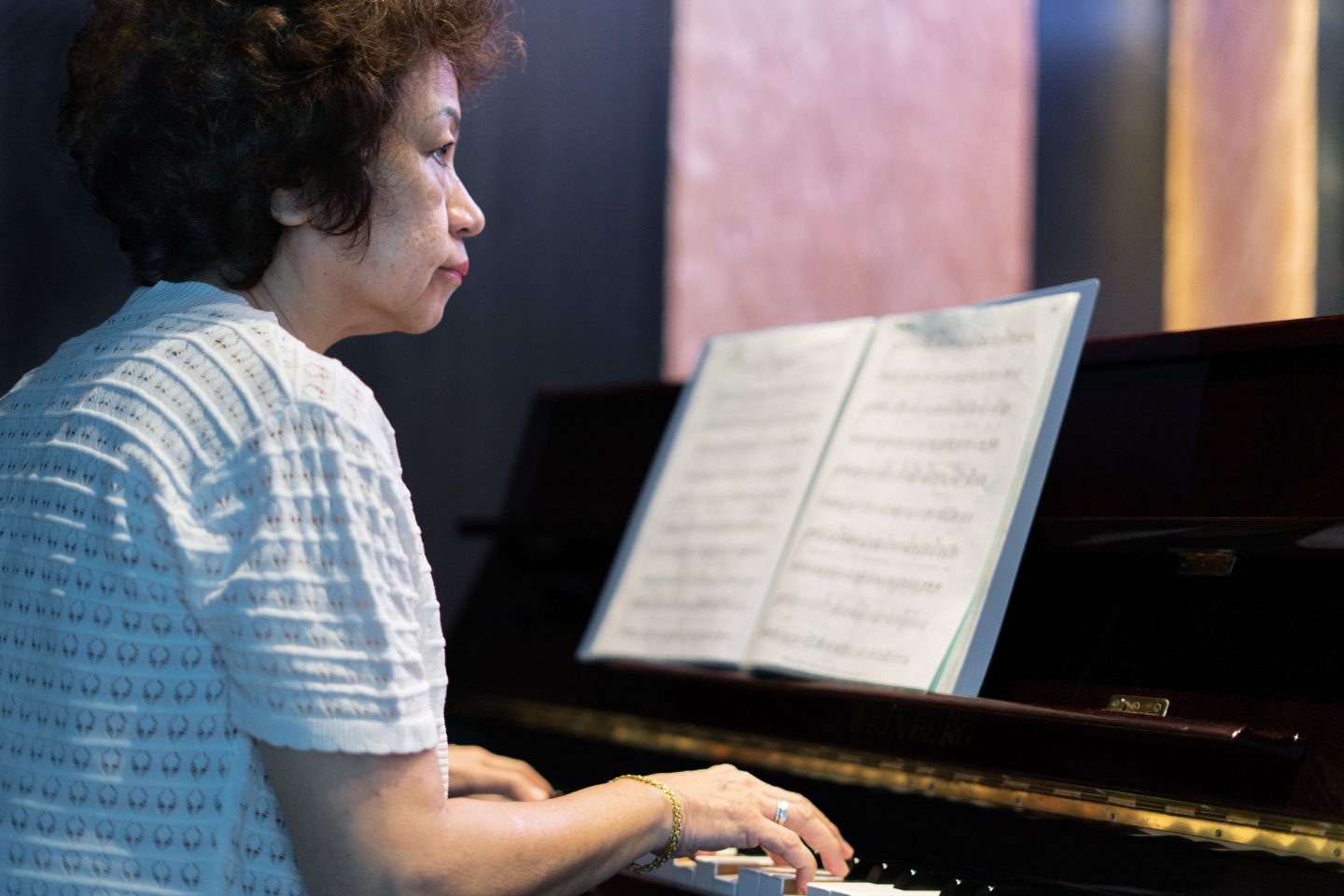
Far East Organisation’s chapel service opens with worship, before Chan presents a short devotional, often related to workplace issues.
The staff managing the assignment thought it would be a huge hurdle – more like a mountain – to cross. But when they sat down with the workers, they were surprised to find that the non-Christians in the company respected the decision, especially since it was consistent with the company’s Christian principles.
Some of the shrines were also relics left behind by former employees that simply had not been removed.
The last altar was cleared at the start of this year.
Contractors that work on the property developer’s projects are also now prohibited from setting up shrines and altars at the worksites. Rather, Chan conducts a blessing at the grounds.
Facing death
Within the prison walls, Pastor Tan also tries to prepare the inmates for the real world using the chapel sermons and counselling sessions.
Many of them may return to families that are dysfunctional, or unhappy that the ex-inmates now “worship a different god”.
To show that he genuinely cares for and wants to keep supporting his “sheep”, Pastor Tan sometimes meets the newly released brothers at the prison gate, and spends the first two days of their lives outside with them, while connecting them with a church.
Pastor Tan has another special role within the prison fellowship.
For the past 11 years, he has been reaching out to convicts on death row.
“I have seen genuine joy and peace at the final moment of death row prisoners.”
Under this ministry, he is only permitted to counsel prisoners that have identified themselves as Christians.
With the death row inmates, Pastor Tan helps them grapple with the issue of forgiveness – which groups of people they should forgive, and how to confess, repent and forgive themselves.
Another common dilemma among these prisoners is the worry for their family – they have children, parents and a wife on the outside, and they fret over what happens after they depart.
Pastor Tan assures them that PFS and churches will lend a hand to help their loved ones overcome the difficult time.
To encourage the men to open up, Pastor Tan says he shares with them his own struggles and past. Sometimes, they end up finding out that they have mutual contacts – Pastor Tan was once part of the penitentiary system too.
Many of them appreciate it when their newfound friend asks them to pray for him too.
The issue of death is palpable. They have one to two years if the appeals fail and their last sentence is confirmed.
However, Pastor Tan says he sees “genuine joy and peace” at their final moment. He attributes it to their recognition of joining Jesus in paradise soon, just like the thief on the cross (Luke 23:43), or Stephen who, before he was stoned, saw Christ standing next to the Father (Acts 7:55).
“It’s quite an experience to witness,” he says.
Pastor Tan related the story of one of the inmates. Unlike the other prisoners, this man was muscular. The chaplain asked him why he troubled himself with keeping fit, and he said: “I decided to donate all of my organs. Therefore, I will keep my part healthy for the recipient.”
Pastor Tan added, tearing up: “And this brother had shared with me the horrendous things he had done in the past, without any regard for anybody else.”
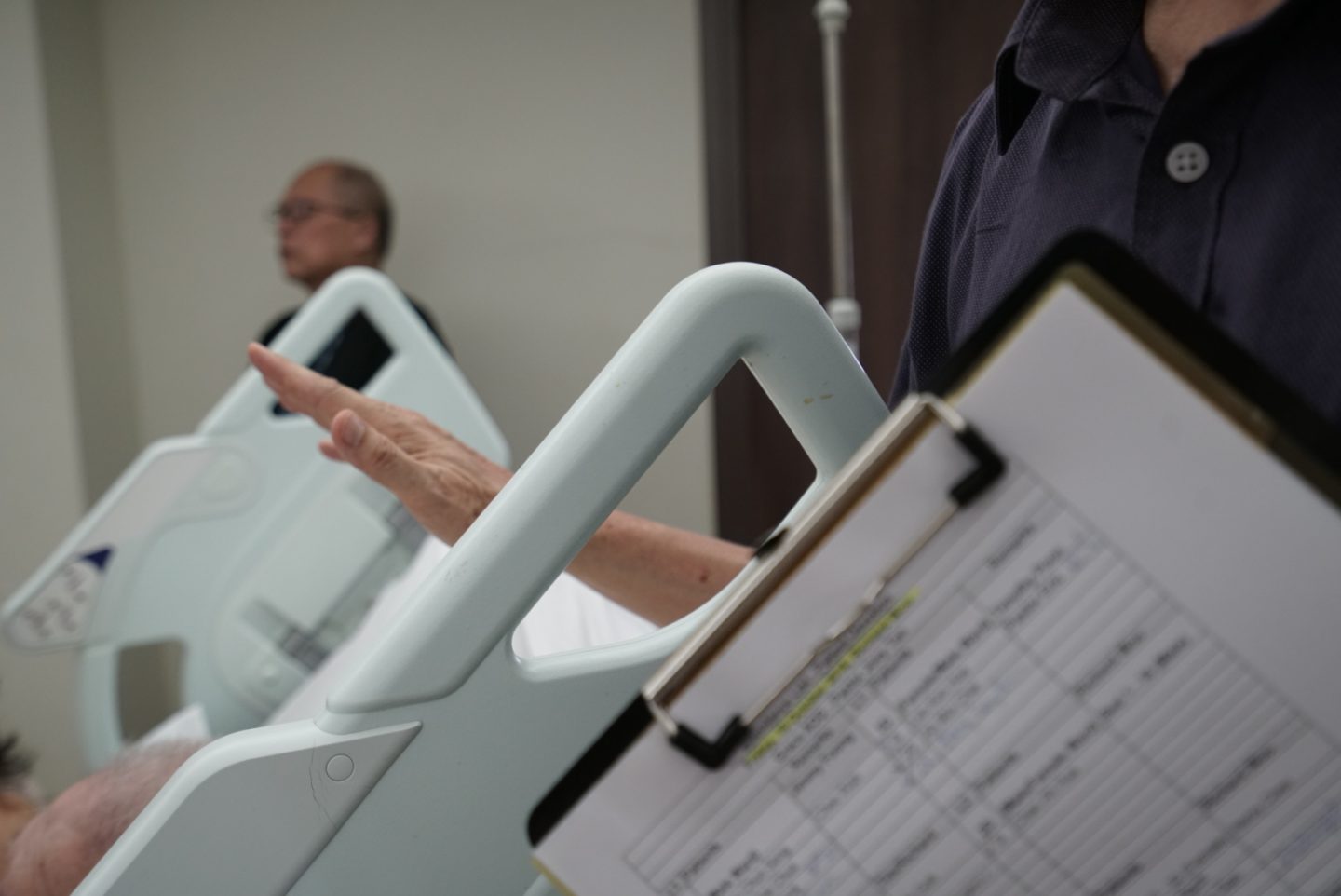
Woo praying for a bedridden patient during the chapel service.
Woo notices a similar calmness among the mostly elderly patients at St Luke’s.
The patients, both believers and non-believers, understand that dying is part of life.
Woo calls to mind John 11:25: “I am the resurrection and the life”.
To the Christians who are fearful, he reminds them that Jesus has conquered death (1 Corinthians 15:57), and He has in store for us a beautiful place (John 14:3).
We are an independent, non-profit organisation that relies on the generosity of our readers, such as yourself, to continue serving the kingdom. Every dollar donated goes directly back into our editorial coverage.
Would you consider partnering with us in our kingdom work by supporting us financially, either as a one-off donation, or a recurring pledge?
Support Salt&Light

